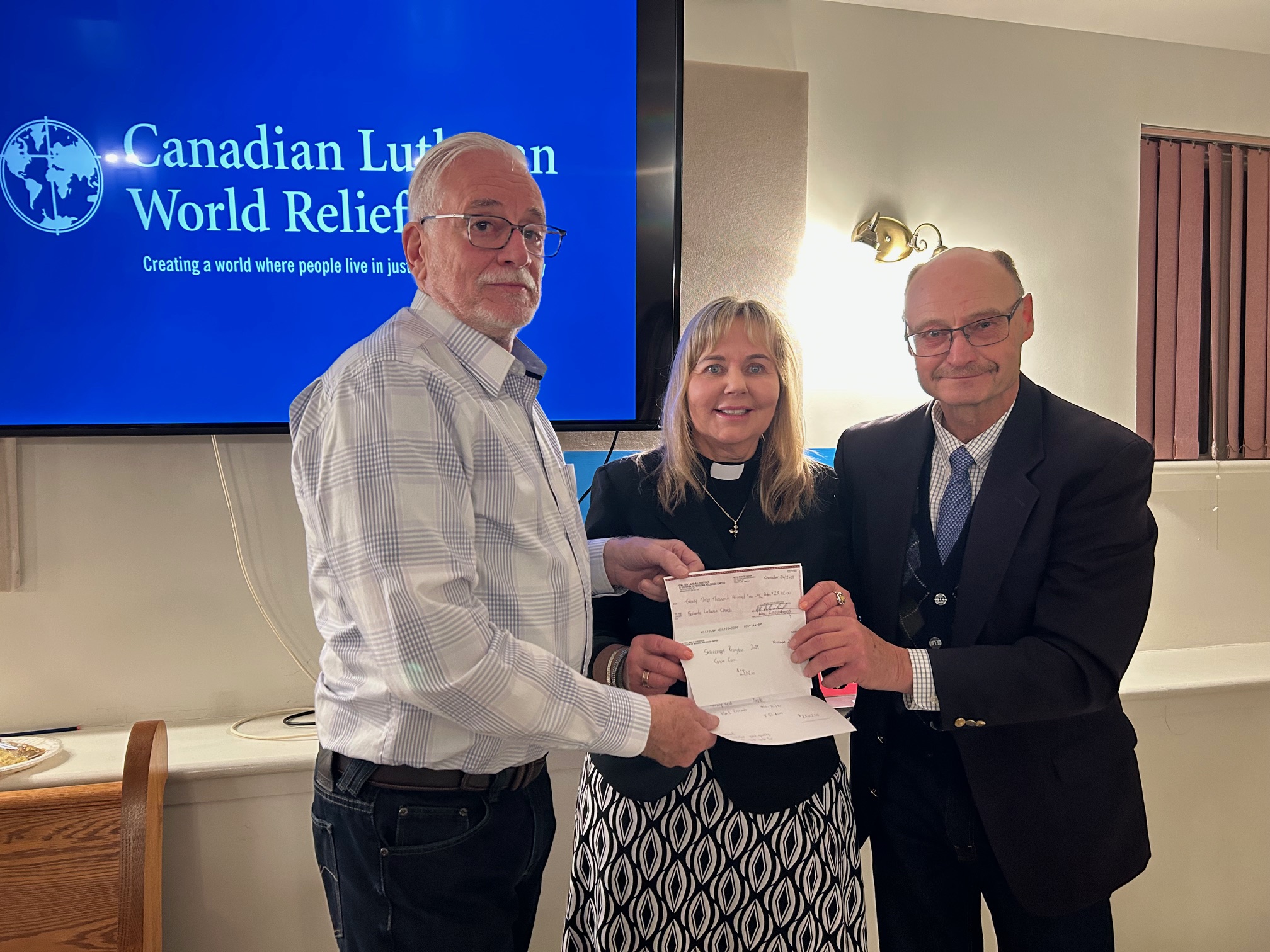
Mar 1, 2024
Your Stories | The Bethesda Sharecropper Project
“A little church doing big things.” That’s what Henry Reinders, Ontario and Quebec representative for Canadian Foodgrains Bank, calls Bethesda Evangelical Lutheran Church in Unionville, Ontario. Since 2000, the church has run the Sharecropper Growing Project to raise funds for CLWR’s account in the Foodgrains Bank. Over the past 24 years, the church has raised $583,000 by growing crops, including $30,000 this year from a 51-acre crop of corn. The large amount the project has raised is thanks to a four-to-one match from the Canadian government— each $100 raised results in $500 of food assistance for people in the developing world.
The project was founded by church members Lorne Smith, and by the late Gerhard Schickedanz and his son, Arthur, owners of Galten Farms. Smith, 86, said he was inspired to start the project after being involved in other Foodgrains Bank growing projects in the region. “I felt we could start our own as a church,” he said, adding, “It wasn’t a hard thing to do. People came right on board.”
They called it the Sharecropper Project because non-farming members of the church are also invited to take part by sharing donations to help defray the costs of growing the crops—paying for things like seed and fertilizer. “We want them to share in the production of the crop and then in sharing with those who need food in the developing world,” said Smith.
The project holds two fundraising events a year where church members can donate towards the costs. Support also comes from the St. John’s United Church in nearby Oakville, which raises money from their congregation for the project. In addition to raising funds for global hunger, the project is also a great way for the congregation to be connected to the church’s farming roots.“We were originally an agricultural congregation,” Smith said, adding that the area is now a busy and bustling suburb of Toronto. “There are only two farmers in the church now.” Members of the congregation have a chance to learn what it is like to be a farmer through the project. “They get to know what it’s like to farm and share the risks farmers take when planting a crop,” Smith said.
For Schickedanz, involvement in the project is a way to put into practice what his parents taught him when he was young. “I was raised to help those less fortunate,” he said, adding it is also a way for him to bring together his gifts and skills as a farmer to help people in need. What stands out for Schickedanz, who farms a total of 800 acres of land, is how the piece of property where the project is located is one of the most productive pieces of land they farm.“We don’t treat it any differently from the other land, but the good Lord has always blessed it. We’ve never had a crop failure on it.”
Bethesda pastor Roy Thakurdyal sees the project as a way for a small congregation to make a big difference in the world. “We get to be involved in global mission as a small local congregation,” he said of the church, which averages 30 to 40 people on a Sunday. The project also enables the congregation to build inter-denominational relations with St. John’s United Church.
For CLWR’s Executive Director Karin Achtelstetter, the Sharecropper Project is inspiring. “Their generosity for so many years in supporting our work with Canadian Foodgrains Bank has no doubt saved thousands of lives and made a real difference for families who didn’t know where the next meal was coming from,” she said. “In a time when things can feel a bit hopeless, Bethesda is such an amazing example of how even one congregation working together really can make a difference.”
Photo caption: Church council chair Don Capotosto and owner of Galten Farms Arthur Schickedanz presenting a cheque to CLWR's Karin Achtelstetter. (Photo: Lorne Smith)


